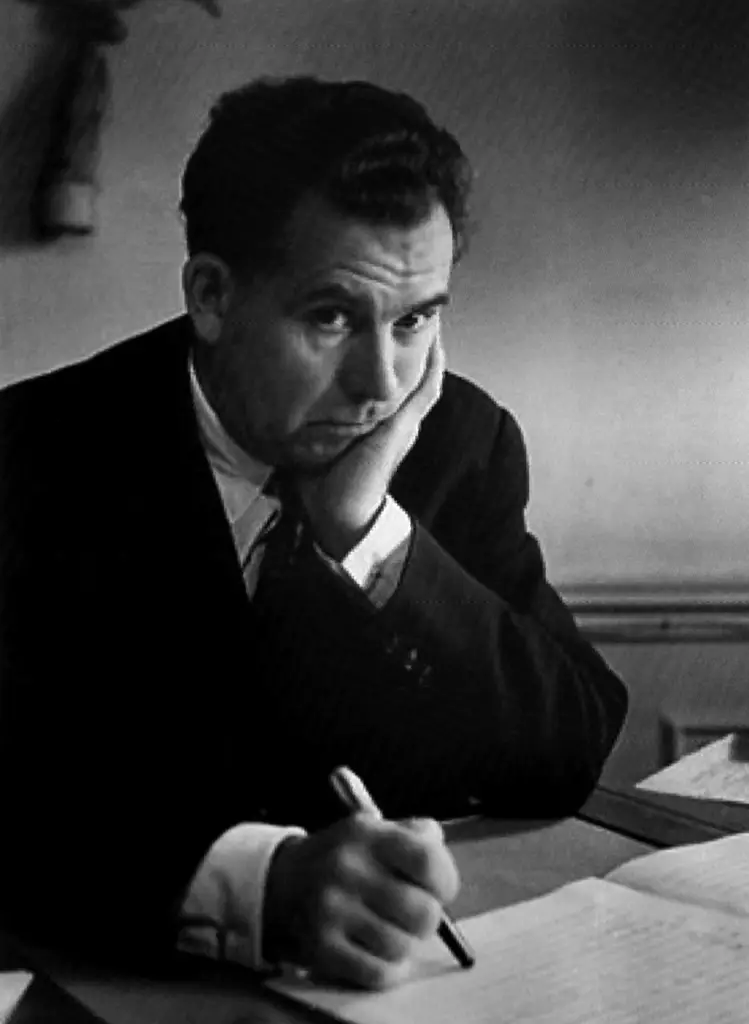
André Jolivet (1905-1974)
André Jolivet was a prominent French composer renowned for his unique musical style, which often included elements of mysticism and primitivism. Despite not being a flutist himself, Jolivet made substantial contributions to flute music, demonstrating a profound understanding of the instrument’s capabilities and crafting compositions that were both innovative and emotionally expressive.
Early Life and Musical Beginnings
André Jolivet was born on August 8, 1905, in Paris, France. His initial exposure to music came through his mother, a pianist, who provided him with his first piano lessons. Jolivet’s early musical experiences profoundly shaped his artistic direction, fostering a deep appreciation for both the technical aspects of music and its potential for emotional expression.
Artistic Philosophy and Influences
Jolivet’s compositional philosophy was deeply influenced by his fascination with the metaphysical and spiritual dimensions of music. He believed in the power of music to connect the material and spiritual worlds, a theme that permeates much of his work. This perspective led him to explore elements of mysticism and primitivism, aiming to restore music’s ancient role as a link between the human and the divine.
During the 1930s, Jolivet, along with composers like Olivier Messiaen and Daniel-Lesur, founded the group “La Jeune France.” This group aimed to promote a more human and spiritual kind of music, distancing itself from the impersonality and abstract intellectualism that characterized much of the contemporary musical scene.
Major Compositions and Career Highlights
Throughout his career, Jolivet composed music across a variety of forms, including ballets, operas, chamber works, and orchestral compositions. His approach often involved integrating diverse musical traditions and innovations, from the use of non-Western musical forms to the incorporation of avant-garde techniques.
Some of Jolivet’s most celebrated works include:
- “Mana” (1935): An early piece for piano that explores magical and mysterious themes.
- “L’Antienne à l’Agneau” (1938) and “Danse incantatoire” (1936): Works that reflect his interest in the sacred and the ritualistic.
Contributions to Flute Music
Jolivet’s contributions to the flute repertoire are particularly noteworthy. His compositions for the instrument are celebrated for their exploration of its technical capacities and expressive range. Works like “Cinq Incantations” and “Chant de Linos” not only challenged the conventions of flute playing but also expanded its expressive possibilities, making them staples in the modern flutist’s repertoire.
Key Flute Works by Jolivet
- Cinq Incantations (1936): This piece reflects Jolivet’s fascination with the primitive and the mystical, utilizing a variety of tonal colors and extended techniques to evoke a ritualistic atmosphere.
- Chant de Linos (1944): Known for its expressive depth and technical challenges, this work combines lyrical melodies with complex virtuosic sequences, making it a favorite among advanced flutists.
- Concerto for Flute and Strings (1949): This concerto is celebrated for showcasing the flute’s dual capabilities for lyrical smoothness and agile virtuosity, cementing its status as a staple in the flute repertoire.
- Flute Sonata (1958): A later work that encapsulates Jolivet’s mature style, this sonata melds modernist elements with traditional lyrical forms, creating a compelling piece for performers and audiences alike.
Jolivet’s Impact on Flute Music
Jolivet’s flute compositions are pivotal for their innovative treatment of the instrument and their capacity to convey a broad spectrum of emotions and atmospheres. His near 20 works for the flute explore its full expressive range, from exuberant joy to deep sorrow, and from rhythmic incantations to dazzling technical displays. Jolivet’s works are essential pieces in the flute repertoire, appreciated for their depth and originality.
Legacy and Historical Significance
Throughout his four-decade career, Jolivet’s exploration of the flute’s capabilities was profound, whether in solo pieces, with string orchestras or percussion, or within various chamber music settings. His enduring commitment to the flute is comparable to the devotion seen in historical figures like Carl Philipp Emanuel Bach and Johann Sebastian Bach, who significantly advanced the instrument’s role as a solo voice. Jolivet’s compositions not only enriched the flute repertoire but also continue to influence musicians and composers, ensuring his lasting legacy in the world of classical music.
Birthday of André Jolivet

